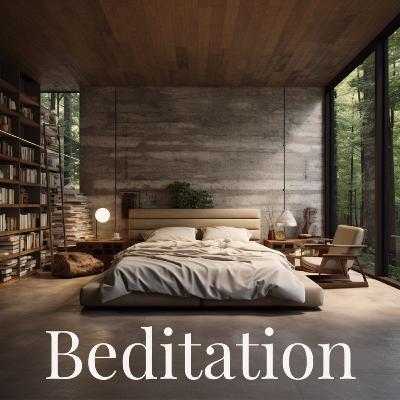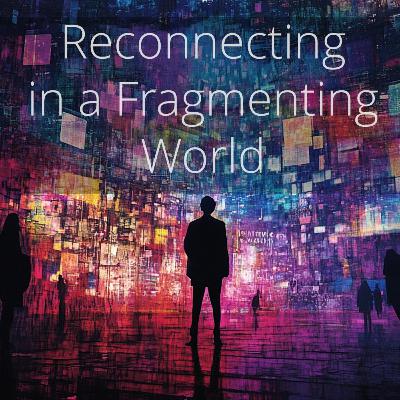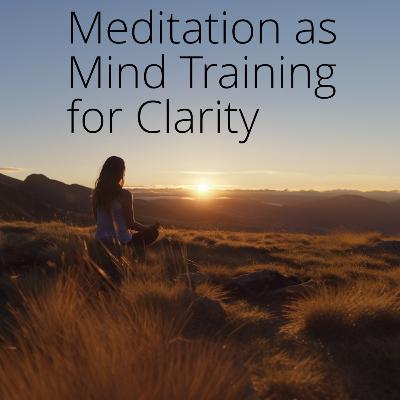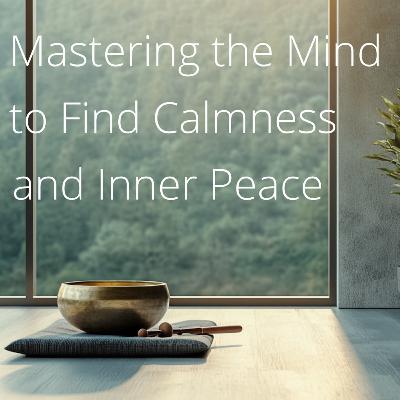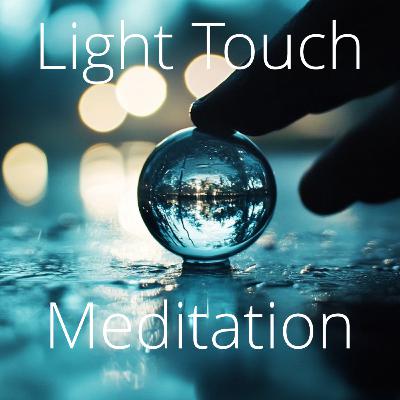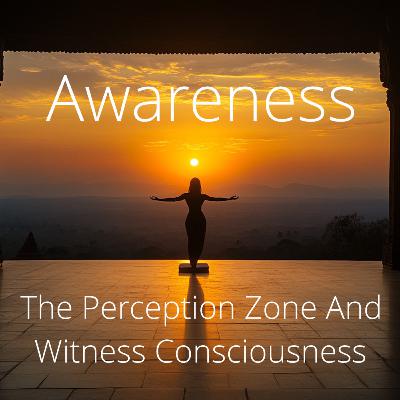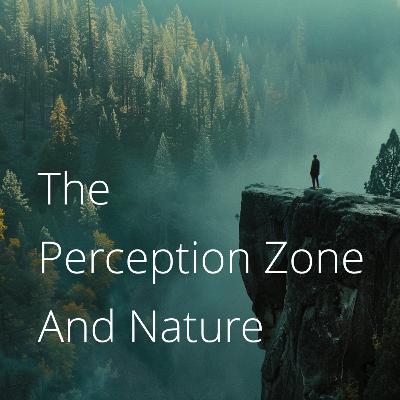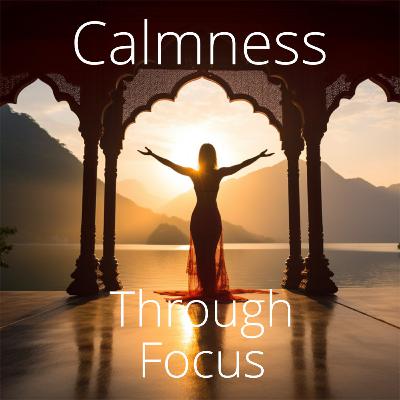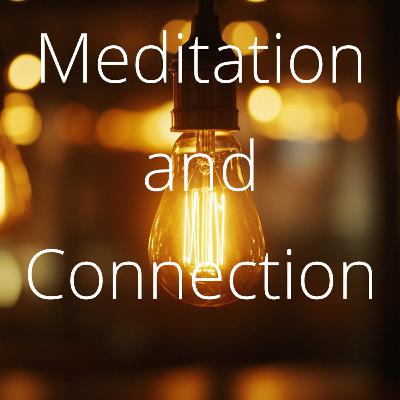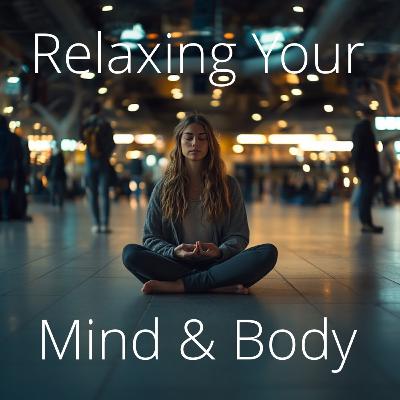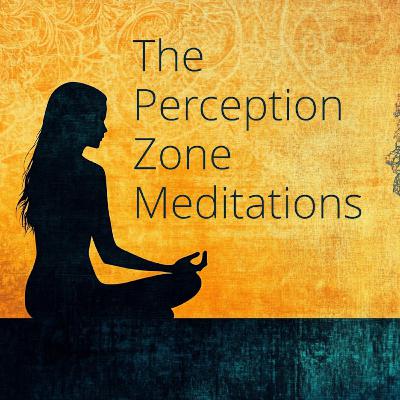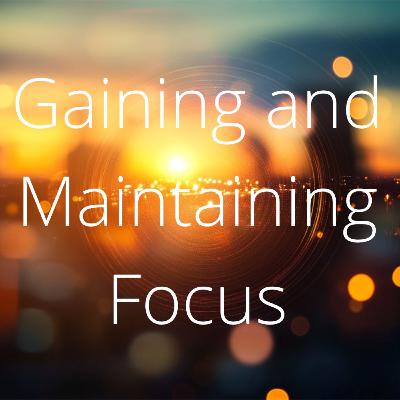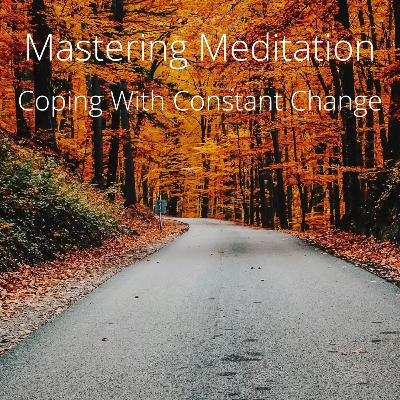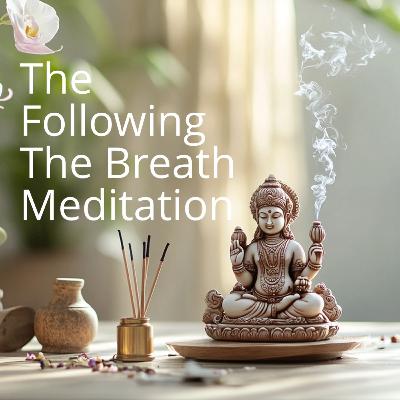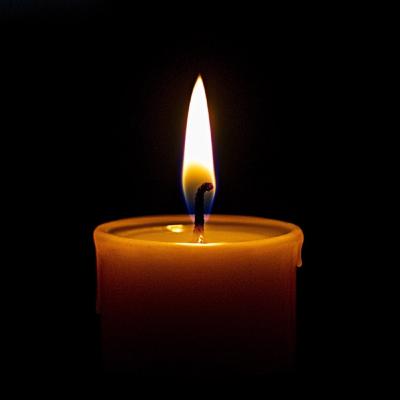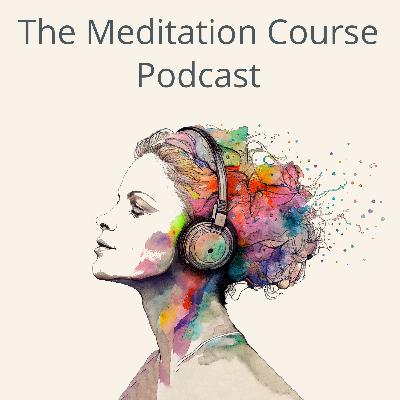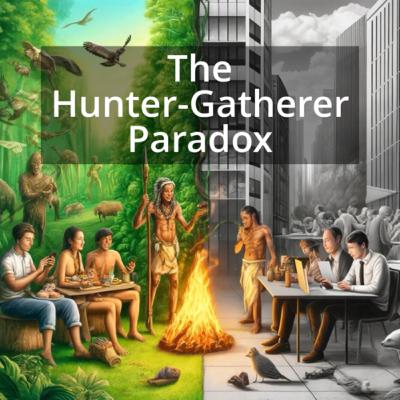Discover The Meditation Course Podcast
The Meditation Course Podcast

The Meditation Course Podcast
Author: Robert Mitchell
Subscribed: 129Played: 2,661Subscribe
Share
© Robert Mitchell
Description
Welcome to The Meditation Course Podcast. I am Robert Mitchell. I teach meditation, mindfulness and resilience in London, England. The podcast episodes are recordings of classes I run on my online meditation course called The Meditation Course.
To join us, sign up for four weekly live guided meditation classes.
To join us, sign up for four weekly live guided meditation classes.
213 Episodes
Reverse
In this class, which I ran as one of my year-round online live group guided meditation classes on Tuesday, the 12th of August, I explained about meditation at night. Beditation can be practised before you go to bed, if you wake up in the night and also while meditating in bed in the morning. I also teach three meditations that I have learned help students to relax, calm their minds and drift off to sleep.This is based on what I've learned from teaching thousands of meditation students over the past 12 years, as well as in my regularly scheduled sleep courses. If you'd like to learn more about my online training or if you're in the southeast of the UK and you'd like to attend some of our courses, classes and workshops. Visit the meditation course website at https://meditationcourse.liveHappy Beditation!
The Eastern Wisdom traditions have gifted us a legacy of thousands of years of mental training. This isn't just noticing the present moment, it's an immense library of meditations, skills, techniques, and training, that combine to work together. These practices help us to construct a map of our inner landscape so we can to navigate our lives more helpfully. Science gives us a mountain of evidence you can transform your life for the better. The combination of practices I teach, from mindfulness to forgiveness and gratitude, appreciation, and others enable us to break through the barriers that our culture forms to experience the joy that this connection can bring. This podcast episode is a recording of one of the classes I recently taught on the meditation course. Click the link below to join us together four times a week to meditate together.https://meditationcourse.live
From a class I taught on The Meditation Course on Thursday 16 January.
I have learned over the last decade of teaching mindfulness, meditation and resilience that disconnection and social fragmentation are among the greatest challenges that people face in the modern world.
The Mind fulness-Based Resilience practices are fine-tuned for this landscape and I explain the scenario and guide some techniques in this class.
Join us at https://meditationcourse.live for 4x classes each week for the same price as a weekly Starbucks coffee. Zero commitment, first month free, easy unsubscribe and real human customer support. Me! 🤗
In this class, we explore the effect of 'The Marketplace of Fear' the modern media has become and learn how to change our mindset so that our attention is no longer drawn consistently towards a place of anxiety.This needs a toolkit of practices that we can use to manage our stress, redirect the focus of the mind, intervene in repetitive thoughts and take beneficial actions.
To join us on our live meditations 4x each week, subscribe at https://meditationcourse.live
In this episode, I teach a set of practices that people have been using for at least 3,000 years to cut through all of these layers of uncomfortable, unhelpful baggage and return us to an experience which is our evolutionary legacy. It's how human beings can live when we are liberated from all of the expectations that the modern world heaps on us.
This is a recording taken from a class on Saturday, 28 December, on The Meditation Course. We meet four times a week to meditate together online. If you'd like to join us for four classes each week for most of the year, the first month is free, and you can cancel at any time. All for the same cost as a weekly Starbucks latte.
Click the link below to learn more.
https://meditationcourse.live
Hi everyone,
This is another meditation only episode. I will add a small number more of these then probably, depending on the response, return to the full episodes including the talk.
In any case I intend to add a few more of these meditation only episodes as they have been requested by students.
There is quite a lot happening in January so I suggest that you subscribe, at least for free, to The Meditation Course at: https://meditationcourse.live
That way you will be up to date with the changes.
I hope you enjoy this meditation and there are more to come.
with gratitude,
Robert
Understanding Awareness, The Perception Zone, and Witness Consciousness
This meditation is designed to cultivate mindful awareness and Witness Consciousness. It is also a deep and calming practice.
In our fast-paced world, we often find ourselves rushing through life on autopilot. Yet beneath this surface-level experience lies a deeper capacity for awareness that can transform how we experience each moment.
The Three Levels of Awareness
Our consciousness operates across three distinct levels, each offering a unique quality of experience:
1. Basic Awareness vs. Autopilot
At the most fundamental level, we're either present and aware of our surroundings, or we're operating on autopilot - lost in thoughts, memories, or future planning. Brain imaging shows these states activate different neural networks:
Task Positive Network: Activates when we're consciously aware and engaged
Default Mode Network: Engages during mind-wandering and autopilot states
2. The Perception Zone
The perception zone represents our brain's integration of sensory information into a coherent experience of the present moment. Research shows this integration happens in roughly 300-millisecond chunks - creating our continuous experience of "now."
3. Witness Consciousness
This deepest level occurs when we become aware that we're aware - a meta-cognitive state where we consciously observe our own experience. It's not just being present; it's choosing to investigate and explore our present-moment experience with intention.
Understanding the Perception Zone
The perception zone is particularly fascinating because it represents how our brain actually constructs our experience of reality:
All sensory information gets bundled together in 300-millisecond packages
This creates our seamless experience of the present moment
It explains why we notice when audio and video become unsynchronized beyond this threshold
Practical Applications
Driving Example:
Autopilot: Driving while lost in thought, barely noticing the journey
Basic Awareness: Actively focusing on the road and immediate surroundings
Witness Consciousness: Maintaining expanded awareness of all traffic patterns, potential hazards, and your own responses
Social Interactions:
Autopilot: Having a conversation while mentally planning tomorrow's schedule
Basic Awareness: Listening attentively to the person speaking
Witness Consciousness: Being aware of the entire interaction - verbal and non-verbal cues, emotional undertones, and your own internal responses
The Body's Role in Awareness
Our bodies play a crucial role in awareness:
Physical sensations often precede conscious awareness
The body processes environmental information before we're consciously aware
Emotional states have distinct physical signatures
Body awareness can deepen our present-moment experience
Practical Steps for Developing Awareness
Start with the Basics:Practice simple present-moment awareness through focused attention on breath or sensory experiences
Explore the Perception Zone:
Cultivate Witness Consciousness:
Integration into Daily Life
Practice awareness during:
Conversations
Walking
Routine tasks
Challenging situations
Periods of stress or emotional intensity
A Journey of Discovery
Developing awareness isn't about achieving a perfect state of consciousness. It's about gradually building our capacity to be present and engaged with our experience. Each moment offers an opportunity to practice and explore these different levels of awareness.
Another Meditation only today.
The perception zone is our nexus in space and time. We need to be aware of our presence in the space around us, and we also need to be aware of the passage of time. When we're in nature, this gets switched on. Walk into a forest, especially if you're alone, especially if there's low visibility, and you will be plugged into your environment, receiving all of that sensory information and processing it in a natural way.
Fast forward to the modern world. We're on autopilot all day in our minds, trying to solve problems. There's an overwhelming stream of information, and we ask ourselves, where did the day go?
In the meditation this week, we're training ourselves to become aware that we're here in our environment, aware of the passage of time. This is the power of the perception zone. This is the power of now.
https://meditationcourse.live
This Episode is a meditation only.
Apologies for the delay in posting. I have been focused on the pilot for a private podcast for subscribers to The Meditation Course. This has almost all of my classes on it so there are three or four episodes each week. This will be available as an extra tier in January, 2025.
Change of Format
Normally my podcasts are recordings of my classes which all start with a talk.
This is the first of a Series of Episodes which will just consist of meditation practices that will bring calmness in different ways.
Everyone is different so I will provide a number of different options. My goal is to give you a place to come and listen to a meditation session of between 20 and 30 minute durations you can choose from.
As this is a new format, I will open the episodes to comments on Spotify and on The Meditation Course website here: https://meditationcourse.live
This is a recording from a class on Thursday, November 7. The topic of the class talk is Meditation and connection. In it, I explain how some Meditation practices (including the practices in the Seven Keys to Clarity program running on The Meditation Course) help us release the burden of beliefs that form our mental model and cause us to feel separate from nature and each other.
This sense of separation, almost universal in our consumer Society, is destructive for a social animal like a human being.
The journey of Meditation is a journey of learning about reality (the present moment) and realising that we adopt an illusion created by our society: that life is a continuum, that the present moment is something to be gotten out of the way to reach the future, and that the mental model that we form represents our lives, whereas it instead creates an illusion that is constructed in our heads and distracts us from the present moment which is where we connect.
The meditations begin at 14:10 and combine mantra, connection, and visualisation meditations.
To join us for four live group guided meditations every week for the price of a start weekly Starbucks latte, visit https://meditationcourse.live.
In this class recorded in Bromley on Saturday 26 October and part of The Meditation Course, I explain how we can relax our mind and body together.
The way that the mind connects to the body is fascinating.
By relaxing the body deeply we can come to a place of deep, focus, and calm for the mind.
To join us for four live group guided meditation classes each week, visit https://meditationcourse.live
Meditation is mental training. It's easy to become diverted into the meditative experience itself and think that is the end of it.
It's important to remember that meditation is mental training for life. We can learn many skills from our meditation practice that can benefit us in different ways.
It's never too early to put what we learn in meditation into use as during our day. Then we can integrate these practices into our life and that transforms our life.
In this class, which I taught on The Meditation Course, I focus on the Perception Zone, which is a concept I use to help meditators experience and understand the present moment and learn a set of tools that help to bring us into it, whether it's during the meditation or during our day.
If you'd like to join us, click on the link below. The first month is free at the moment. There is zero-commitment and easy unsubscribe.
Click this link to join us.
https://meditationcourse.live
Contact me if you have any questions.
The direction of the mind is a combination of thoughts and emotions that lead us into an inner narrative. This narrative can be unhelpful or even distracting.
In this class I taught on Saturday, 12 October, we explored the relationship between the mind and emotion. We practised some meditations that help us work with the mind when its direction is powerful and intense. The meditations include meditating on the body and also using labelling, which is the meditation of the month for October.
Join us on The Meditation Course *Live* four times each week for more guided meditation classes.
We can't predict our future mental states or how we'll think or feel because we can't predict the events and experiences that will create those thoughts and feelings.
Because of this uncertainty, it is unwise to rely on a single meditation practice, however cosy and comfortable, or even a tiny selection that gives us what we need right now.
Meditation is mental training. When we meditate, we build our inner resilience. To do that, we need to grow our repertoire of practices. We then extend our skills to meet future adversities.
When adversity arises, we can then trial and error through our repertoire of practices to find the one that returns our minds to the clarity and focus we need to cope and make the best choices.
I call this a meditation toolbox.
Speaking to other experienced meditators about this, they also have a variety of techniques and use them to help them in a wide variety of situations. Then, when a new complex experience arises, we can select which tool to use to get our mind on our side and make the best of it.
I discuss this in this meditation class and teach some practices that will help you to build your meditation toolkit.
The first meditation of the month is Following The Breath.
In this class, we learn how focusing on the breath enables us to connect to the present moment. We also learn how to practice this and how this skill can work for you during your day to help you switch on mindful awareness and step out of the craziness of the modern world.
Meditation of the Month
We will have a meditation each month and then have some support for that meditation. There will be a focus on it, explanations of how it works, how you can benefit, what the downsides might be, any dead ends, etc.
You can read supporting articles for the training on the meditation of the month series on The Meditation Course website.
https://www.meditationcourse.live/blog/
This episode is a recording of a class on The Meditation Course on Thursday, 15 August.
I am posting more regularly but on a private podcast. Contact me for details.
In this class I explained about mantra and we practiced a variety of mantra meditations.
A mantra is something you say aloud or in your mind that you repeat.
Mantra meditation is a truly ancient practice that goes back to the Rig Veda, which was written about 1,500 years before Christ. In mantra meditation, we focus on our own voice, either our spoken voice or our inner voice. Meditators often get together and repeat the words in a group, chant them, or sing them.
Mantra meditation is a focused attention meditation, making it a mindfulness meditation, though it is rarely taught by mindfulness teachers who prefer to focus on the breath. It is particularly useful for students who find focusing on the breath uncomfortable.
After our meditation and nature connection retreat at the weekend, I thought it was a good idea to run a class on the meditations that we did in nature.
Connection in nature is all about allowing natural environment into an our experience. All the sensations and smells and sounds become part of the totality of the experience of the present moment, which is what mindfulness is.
To experience this, we need to learn to open our awareness to our environment.
In this class, I teach a process of incrementally opening our awareness.
Although this is I'm an important part of nature connection, it's an important part of experience in life rather than existing in a sensory bubble on autopilot which is what our culture teaches us to do.
To join our four live group-guided online meditation classes each week, click here:
https://meditationcourse.live
To attend our retreat, click here:
https://bromleymindfulness.org.uk/day-retreat
Hi everyone,
Today's meditation class explored the link between our natural connection to other people and to nature that works so well for our ancestors, but breaks down in modern societies with millions of people. Unfortunately, I know the audio quality was poor and so I have cleaned it up and made it available as a podcast and on the meditation course website which is at https://meditationcourse.live
In this week's class on my online meditation course, we explored observation meditations. We explored how our perceptions, influenced by our cultural backgrounds and culture, add layers to our experiences, much like augmented reality. The class explained how we can be aware of our cultural filter while practicing meditation and experiencing mindfulness. Through examples like walking meditation and the metaphor of augmented reality, we learned to distinguish between observation of our reality and observation influenced by personal and cultural filters. This insightful session is part of my continuous effort to offer practical and imclusive and accessible practical guided meditation, helping you integrate mindfulness into everyday life.
My Online Meditation Course is here: The Meditation Course
Introduction to Observation Meditations: Today, we'll focus on observation meditations. This means we'll pay attention to our current experience, whether that's the present moment or thoughts about the past.
The Fundamental Act of Observation: Today, we're focusing on meditations that involve observing, especially our current experiences. Observation is key. For example, when counting breaths, we're both observing the breaths and we can also be aware that we're observing them.
Seeing is Not Just Seeing: It's not just the observing that matters, but also being aware that you're observing. There's a difference between just observing and being aware that we're the observer.
Walking Meditation and Mindfulness Practice: For example, during a walking meditation, which I shared on my social media yesterday, I will focus on my breathing while noticing other things around me and bring my focus back whenever my mind wanders.
Training Witness Consciousness: Meditation is about training ourselves to realise when we are distracted. This awareness then enables us to choose to focus on the present or on something else which may be a higher priority.
Witnessing Reality: When observing, such as observing our breath, we become a silent witness. Looking inwards to try to perceive this witness is part of the practice. This is the heart of self-enquiry.
Augmented Reality as a Metaphor: Augmented reality, like seeing a digital dragon in a room through an app, can help explain how we add layers of perception to our experiences. The Dragon isn't real. Our culture has put it there. The value we see in things (such as brands) is no more real than the dragon but we can perceive it.
Integrating Reality with Perception: By using augmented reality as an example, we can understand how our perception adds to what we see, like seeing a dragon in a room through a mobile.
Cultural Filters in Perception: Our cultural background adds meaning to what we see, similar to how augmented reality adds digital images to our view.
Mindfulness and Cultural Filters: Mindfulness involves being aware of our perception without the added layers of our cultural or personal biases but also allows us to see those biases.
Sensitivity Through Observation: By observing our experience consciously (mindfulness), we become more sensitive to our emotional and mental responses to different situations. We aren't trying to find silver bullet solutions to these social distortions, but just noticing them happening. This is enough.
Meditation and Cultural Perceptions: Meditation doesn't stop us from seeing things through our cultural lens, but it makes us more aware of our emotional responses to these perceptions.
Mindfulness and Awareness: Mindfulness is about noticing our present experiences without judgment and understanding the difference between just observing and observing with our personal and cultural biases.
Welcome to The Meditation Course podcast. Today, we return to the essential topic of mindfulness, unravelling its meaning and importance and how to embrace it in our fast-paced world.
Mindfulness may defy precise description, yet it's best understood through direct experience. By simply observing time's passage or the sound of a bell, we begin to engage with the mindful state of being. This state, often sought at great expense at retreats or vacations, is a natural human trait that our ancestors and animals still embrace without effort.
Mindfulness isn't complicated—it's the undistracted experience of the present moment. However, modern lifestyles filled with economic and social pressures have trained us out of this innate ability. We live caught in a continuum of past, present, and future thoughts, many of which are driven by subconscious impulses that we mistakenly believe we can consciously control.
Nevertheless, true mindfulness grants us choice, allowing us to step out of these automated narratives and make informed decisions in the present, where life unfolds. Advertisers and marketers exploit our emotional responses to guide our consumption behaviours. In contrast, mindfulness equips us with the clarity to steer our actions based on self-awareness rather than external influences.
As we face rapid social and technological changes, such as those brought by artificial intelligence, the necessity for mindfulness becomes even more pronounced. To adapt and thrive, we must be present, mentally clear, and ready to navigate the paradigm shifts of our lives. By practising mindfulness meditation, we train ourselves to harness our awareness, make better choices, and truly engage with life's vast potential.
Meditation has two parts: achieving mindfulness, or presence in the now, then regaining the ability to make better choices with this renewed perspective. It's an invitation to embark on a mindful journey that promises a paradigm shift in our daily existence.
For the full podcast notes (transcript) or to learn more visit The Meditation Course website at https://meditationcourse.live


